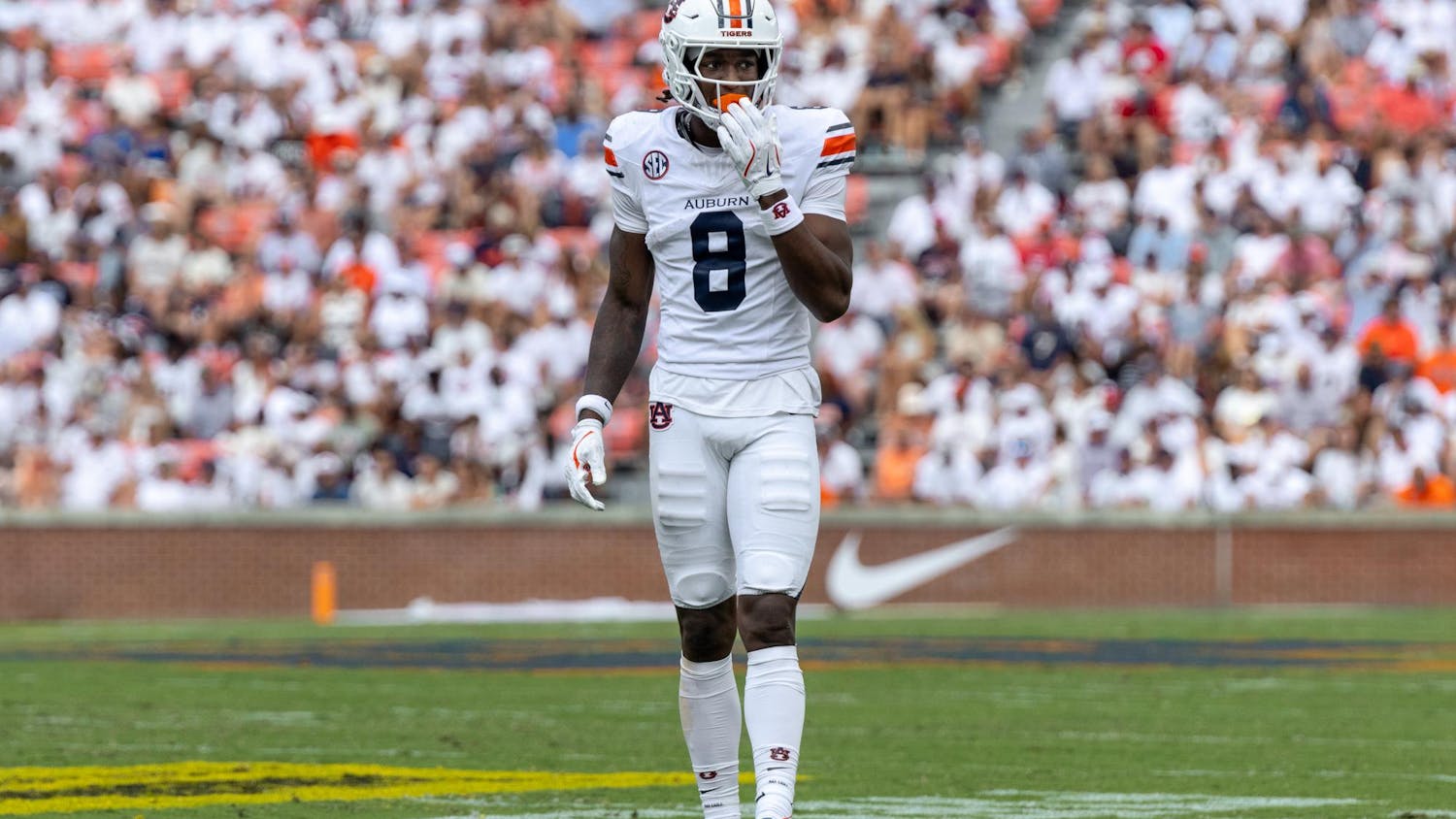Robert L. Shibley, executive director of the Foundation of Individual Rights in Education, or FIRE, s
Shibley was a part of the first installment of the spring slate of the Critical Conversations Speaker Series, which began in the fall. The event was held
Shibley gave an outline of the history of free speech in the United States, including examples of when its legality has been tested in court.
“America really is an outlier,” Shibley said. “We are the only country with the level of protection for free speech that we have.”
Taffye Benson Clayton, vice president and associate provost of inclusion and diversity, saw Shibley’s strong support of free speech as a way to continue the Office of Inclusion and Diversity’s mission to advocate for free speech in higher education.
“Continuing to engage our campus with different viewpoints on this topic is a key component of our mission to create a stronger intellectual space for our students and faculty,” Clayton said.
Shibley said that universities and higher education are ground zero for furthering understanding and knowledge.
“Not every student is a scientist,” Shibley said. “Every student is running an experiment on themselves. College students are figuring out what they believe, what kind of person they want to be, what they want to do with their lives and so much more.”
Shibley said that if the audience were to take anything away from the speech, he would want it to be that people should heavily consider the prospect that they are wrong on any particular idea. He said free speech is key to deliberating the truth.
Shibley put an emphasis on maintaining the level of free speech in the United States, especially at the college level. He spoke on the work that FIRE has done in that realm.
Red light is given to universities with at least one unconstitutional limit on speech, yellow light is given to universities with what FIRE perceives as too much regulation on speech and green light is given to universities that have proper protections for free speech.
Auburn is the most recent university and the only university in the state of Alabama to be classified as green light.
“I thought that was awesome that Auburn is that esteemed in the state,” said Victoria Stark, freshmen in pre-graphic design and architecture. “It shows how far we’ve made it past other colleges.”
Shibley discussed the situation with the Richard Spencer controversy at Auburn last year. He said people at FIRE winced when the University did not originally allow Spencer to speak.
Shibley said he was proud, however, that students utilized their free speech rights to protest the event.
Shibley gave examples of when
During the question and answer session, when Shibley was asked about what limitations on free speech he believes are necessary, he said there are eight limitations that FIRE has outlined, which all follow from the limitations set forth by cour precedent.
“While something that is in bad taste may also be unprotected speech, such as harassment, threat or libel, the fact that such speech is in bad taste doesn’t enter into conversation in the legal perspective,” Shibley said. “Threatening to kill someone in a tasteful manner does not get you any points in the court of law.”
In addition to stating the importance of free speech, Shibley described how free speech can work toward understanding between people through persuasion in the marketplace of ideas.
Shibley told the story of Daryl Davis, a black man who has persuaded over 200 people to leave the Ku Klux Klan as a way to show how dialogue can reach understanding.
Cole Cheatham, sophomore in economics, thought Shibley was not specific enough in the issues present on campuses today.
“I think it goes back to this thing that it legally addressed issues, but I don’t think it really got at the heart of what is really going on,” Cheatham said.
Garry Morgan,
“Sometimes in a court of law it’s black and white, wherein education it’s ... polar opposites,” said Haven Hart, assistant vice president for student development and affairs. “We have an opportunity as educators to see the grey and try to work within that.”
Do you like this story? The Plainsman doesn't accept money from tuition or student fees, and we don't charge a subscription fee. But you can donate to support The Plainsman.




